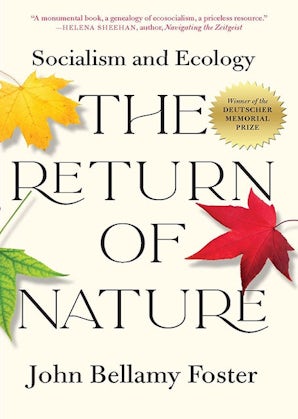Ecology after Marx: Green Left reviews Foster’s “The Return of Nature”

The Return of Nature: Socialism and Ecology
672 pp, $35 cloth, ISBN 978-1-58367-836-7
By John Bellamy Foster
Reviewed by Neville Spencer
“The Return of Nature is essentially a sequel to John Bellamy Foster’s Marx’s Ecology published twenty years earlier. In this new work Foster examines the ecological thought of those who came after Karl Marx and were influenced by his philosophy, politics and ecology. ¶ Among the theorists that Foster examines, the ideas of socialism they held and their relations to the socialist movement were of various forms. But an important unifying thread which informed their ecological thinking is the materialist and dialectical critique that originated with Marx….”
Read the review at greenleft


